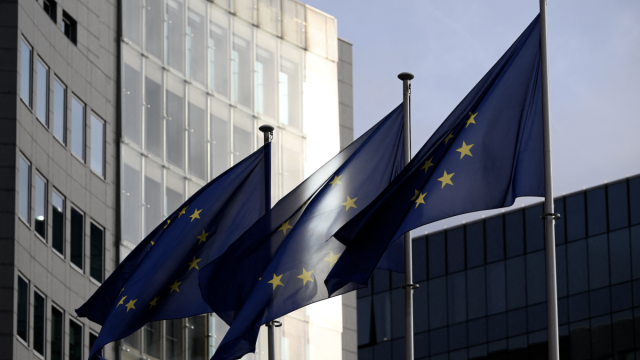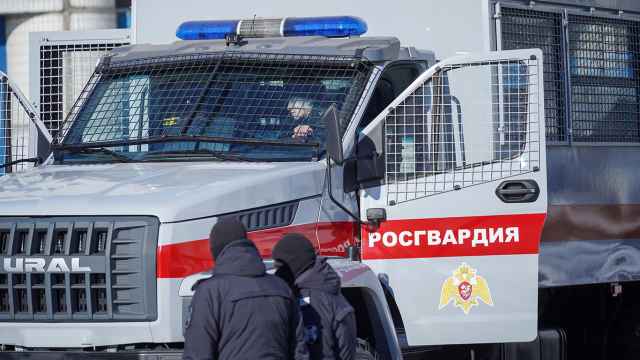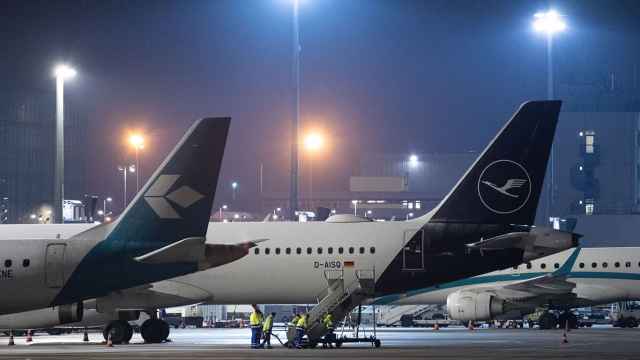The International Monetary Fund needs “thorough reform” and Russia will push for deals giving developing countries more clout in time for a Group of 20 summit that it is hosting in September, President Vladimir Putin said.
Putin, speaking in an interview with state news agency RIA Novosti before a two-day Group of Eight summit opens in Northern Ireland on Monday, emphasized Russia’s role as current G20 president and next year’s leader of the G8 industrialized nations.
He mixed criticism and praise, getting in digs at the West but casting Russia as a constructive partner eager to help.
‘We will make maximum efforts to persuade our partners to reach a compromise.’
Vladimir Putin
President of Russia
The IMF often responds too slowly to changes in financial markets and the implementation of its decisions “leaves much to be desired as well,” Putin said. “A good example is the global financial crisis, which the IMF system failed to prevent.”
Talks on revising the IMF quota and voting systems to enhance the role of the BRICS countries and other developing nations “are not going smoothly. I would say that they have actually come to a standstill since 2010,” he said.
IMF member countries have wrangled for more than two years over specifics of a formula to determine member countries’ voting power that would give emerging economies greater say in the global financial institution.
“We will make maximum efforts to persuade our partners to reach a compromise and find mutually acceptable solutions in the run-up to the G20 summit in St. Petersburg,” said Putin, who will host the meeting in his hometown.
He said that when Russia takes the helm of the G8 next year and holds the summit in the Black Sea resort of Sochi, where the 2014 Winter Olympics will take place next February, it will focus on “searching for responses to new security threats.”
He had praise for next week’s summit host, British Prime Minister David Cameron, whose country is using its G8 presidency to push for a global clampdown on complex arrangements used to disguise wealth and minimize tax payments.
Putin, who pledged a “de-offshorization” push to stem capital flight after returning to the Kremlin last year for a third presidential term, stressed that the problem is not Russia’s alone.
“We have all seen how not long ago the head of Apple answered the awkward questions of senators about the fact that his company keeps tens of billions of dollars … outside American tax boundaries,” Putin said.
He said Russia advocated bilateral agreements with offshore jurisdictions aimed at curbing illegal tax-minimization schemes.
Putin, who often contrasts Russia favorably with the West, said some European countries were living beyond their means, and many were seeing “a rise of dependency mentality, when not working is often much more beneficial than working.”
“For Russia, such an approach is unacceptable,” he said, but he added that leading European nations were carrying out structural reforms and said “we should not reject the European social model.”
Putin said there was a “certain stagnation right now within the World Trade Organization,” which Russia joined last year after nearly two decades trying. “However, this is no reason to tear this structure down.”
He said Russia was accused of falling short of fulfilling its WTO commitments but has its own complaints, saying it is unreasonably denied access to some markets in fertilizers, chemicals, automotive fuel and pipes, among other goods.
Putin, who skipped the G8 summit hosted by U.S. President Barack Obama last year and will meet Obama for the first time since last June, made only brief mention of global political and security issues in the interview.
G8 leaders “plan to talk about the situation in Syria, the Middle East and North Africa, Afghanistan and so on. We expect that the results of this discussion will be useful,” he said.
n Alexei Simanovsky, first deputy chairman of the Central Bank, on Friday objected to Putin’s proposal to set an interest rate target for banks to make loans more affordable.
Simanovsky said such a target would have exactly the opposite effect. Banks will refuse to lend at below-market rates due to high risks, he added.
A Message from The Moscow Times:
Dear readers,
We are facing unprecedented challenges. Russia's Prosecutor General's Office has designated The Moscow Times as an "undesirable" organization, criminalizing our work and putting our staff at risk of prosecution. This follows our earlier unjust labeling as a "foreign agent."
These actions are direct attempts to silence independent journalism in Russia. The authorities claim our work "discredits the decisions of the Russian leadership." We see things differently: we strive to provide accurate, unbiased reporting on Russia.
We, the journalists of The Moscow Times, refuse to be silenced. But to continue our work, we need your help.
Your support, no matter how small, makes a world of difference. If you can, please support us monthly starting from just $2. It's quick to set up, and every contribution makes a significant impact.
By supporting The Moscow Times, you're defending open, independent journalism in the face of repression. Thank you for standing with us.
Remind me later.





